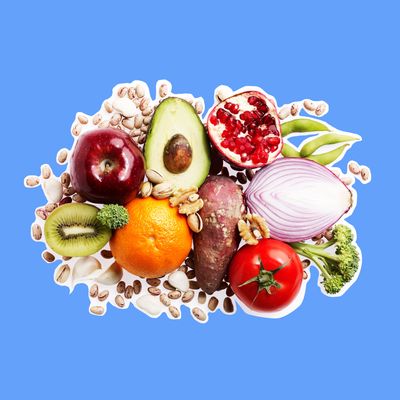
What would it take to get Americans to eat less meat? New reports from teams of scientists and researchers are making a growing case for something approaching six-day vegetarianism. At first I was skeptical, but now I’m pretty much 100 percent onboard and banging on the sides of the train hoping everyone else will also get on, immediately.
The influential medical journal The Lancet has released two massive and controversial nutrition reports this past month (in addition to an editorial last November). The first report made a case for eating a lot less red meat (they suggest once a week would be ideal), while the second one, released on Sunday, focuses more on what they’re calling “The Global Syndemic of Obesity, Undernutrition, and Climate Change.” They argue that the three crises (or, the three-pronged synergy of epidemics) are inextricably linked, and that by correcting one, we can correct them all. I like New York University professor and food journalist Marion Nestle’s concise take on the report: “Wow. This is telling it like it is — at long last.”
The two reports’ central idea is that humankind is collapsing under its own appetite for, and production of, red meat and ultraprocessed food. The authors argue that these foods are making us fat and sick, and that they’re ruining the environment, too, via greenhouse-gas emissions. (Compared to beans, beef calls for 20 times the amount of land and results in 20 times the amount of emissions, per gram of protein.) The latest report proposes several solutions, including (emphasis mine):
- A globally agreed-upon treaty, limiting the political influence of “Big Food” (or “large, powerful food and beverage corporations”). As the authors envision it, we’d begin to consider Big Food the way we’ve historically considered Big Tobacco.
- Redirection of $5 trillion in government subsidies — away from “harmful products” like livestock, fossil fuels, and ultraprocessed foods, and toward “more sustainable energy, agricultural, and food system practices,” although they don’t spell out what those practices might be. (But the earlier report emphasized the production and consumption of beans, nuts, and grains.)
- Reducing red meat consumption “through taxes, redirected subsidies, health and environmental labeling, and social marketing.”
Although the report’s 43 authors (doctors, scientists, and professors from around the world, led by professor-endocrinologist-obesity researcher Boyd Swinburn from the University of Auckland) acknowledge that animal-source foods, including red meat, “provide a rich source of highly bioavailable micronutrients, especially for young children,” they also cite studies linking red meat intake with cardiovascular disease, type 2 diabetes, and some cancers. (The earlier Lancet report suggests that one serving of red meat a week is enough to reap its health benefits.)
These Lancet reports are so long, and seem so thorough, reading them I feel almost clobbered. Soothed? Blanketed? Some popular and respected authors in the low-carb/keto/paleo world were displeased with the first report, including anti-sugar writer Gary Taubes, pro-fat writer Nina Teicholz, paleo/fitness writer Mark Sisson, and psychiatrist and nutritionist Georgia Ede, who spelled out her qualms in a post called “10 Things You Need to Know About the EAT-Lancet Study.” The president and CEO of the Animal Agriculture Alliance also recently told NPR that limiting meat and dairy consumption “would have serious, negative consequences for the health of people and the planet.” Also that meat and dairy provide “unmatched nutrition for healthy bodies, brains and bones.”
So far, no one seems to have found much explicit or additional fault with this second report, however — perhaps because it focuses more on the downsides of “ultraprocessed” food, and there don’t seem to be a lot of people defending that sector. Meanwhile, the report’s authors admit that while “reducing the consumption of red meat is a cornerstone for healthy, sustainable diets,” achieving it “will be formidable given the current supply and demand dynamics.”
This report makes me think that this could all really, maybe, possibly happen. Maybe not now, maybe not even soon, but it does feel like a real rumbling in the ground of how we eat. Maybe that’s because it aligns with something intuitive: It feels good to eat more carefully.
What if this were the beginning of a great, slow near-vegetarianism? It’s worked on me, anyway. A few years ago, I was very “grass-fed everything,” but now I like the once-a-week idea. Am I wrong? Am I healthier? I don’t know.
In any case, what would happen if meat became crazy expensive? I’m envisioning, like, a truly special Valentine’s Day steak for two. Made at home.




